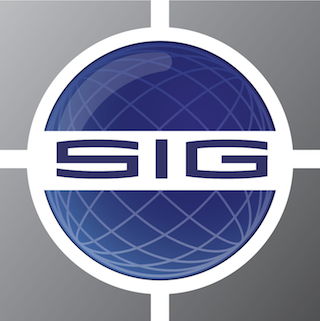By Dee Smith
I recently returned from 6 weeks in Europe — Austria, Italy, Switzerland, and the United Kingdom. My trip coincided with the build-up to President Trump’s tariff announcement on “Liberation Day” and the reactions that followed it. The most interesting element of the trip was the evolution, or devolution, in views of the United States.
At the end of February, the attitude I first encountered was a mix of perplexity about the changes in the US and sadness that they were occurring. Even people who were disposed to dislike the US discovered that they had nonetheless kept within themselves a kind of hope based on belief in America and its distinctive experiment in democracy and freedom. Even with all its flaws the US seemed, so they said, to represent a possibility that humans might be better than we fear we are. One remark I heard summarized the attitude: “It seems that the lights have gone off in the shining city on the hill.” It was a sense of tragedy, almost of grief. Now, some said, they see that the U.S. is “just another country.”
But as the tariffs were imposed, this recessional mood changed. The attitude of heartache began palpably to transform into fear, and into anger. It was not as if the winds of change had not been blowing, and they knew that. There had, for example, been warning signs over the years that the US was pulling back militarily from Europe. And the Europeans were certainly aware of the fractures in US political structures, as in their own.
However, the tariffs were something different. The universality of them, the suddenness, and the way they were applied — with a chart apparently developed with the help of ChatGPT based on an arbitrary calculation — was disorienting, then frightening, and finally angering.
When the White House suddenly, and apparently temporarily, backed away from the tariffs soon after they were announced, it simply added confusion to the fear and anger around the entire issue and in many minds further undermined the stability of the US governance and financial system. “I really don’t know what to think” was a comment I heard more than once, sometimes followed by “but I’m angry.”
Although they may not have known what to think, they did know how they felt. People have cancelled trips to the US and taken other personally expensive measures, so off-putting have they found the developments.
There was still, amid the feelings of loss and anger, the wish that the old US would come back to something like what it was and an ember of hope that it might. But the dominant note was fear, driven by US actions but not only about them. People fear the Ukraine war continuing while they also fear it being settled: they fear Russia’s intentions once it is loosed from the constraints of fighting in Ukraine. They fear war in other hot spots: Iran, Taiwan, the Koreas. They fear the non-sustainability of their economic situation. They fear having to dial back their social support systems to increase their military budgets. They fear they will be outcompeted by other areas of the world. They fear for their supply chains. They fear more and larger waves of immigration from the Middle East and Africa, particularly if war escalates in the Middle East. They fear for the social and political stability of their countries. They fear unfair competition from China, and they fear what kinds of collusion China and Russia may be up to. And, as a constant, chronic theme, many fear the impact of climate change.
Europe is, like the rest of the world, in the midst of extraordinarily large transformations with unknown trajectories. The changes seem to have come on very suddenly, although of course they have not: there have been harbingers for years. The causes of the changes also elude many. That of course is for history to judge, but I did not find a single person who disagreed with the idea that fundamentally, beneath it all, lie broken promises. I have written about this previously, and will not go into any detail here, but people see that, although they played by the rules, the implied promises they believe were made by the political and economic system — that their children’s lives would be better than theirs, for example — have been irreparably broken.
Most surprising to me, I heard more than a few people in Europe, including investors and businesspeople, say quite seriously that they thought we were at the point of a very big change. And a number said the period between the end of the old and the beginning of the (unknown) new will be very tumultuous and dangerous.
Europe was the birthplace of the Enlightenment, and it was on Enlightenment ideas and ideals that not only the American system but also every system in Europe, and now far beyond, were based. Holding that the world is fundamentally comprehensible, the Enlightenment posited that humans make decisions rationally, in their own best interests, and thus that society can be rationally organized in a purposeful and predictable way. Not just democracy and capitalism, but socialism, Marxism, and communism are all based on different views of how to apply European Enlightenment ideas about organizing society rationally, purposefully, and predictably. Unfortunately, this rationalism simply does not seem to be an accurate take: we make our decisions emotionally.
So I found I was asking myself many times on this trip: if this whole superstructure of concepts does not in the end work — if it cannot work because of the nature of the drivers of human behavior — well . . . then what? That is the largely unspoken fear lying underneath all the other fears, perhaps not just in Europe.
